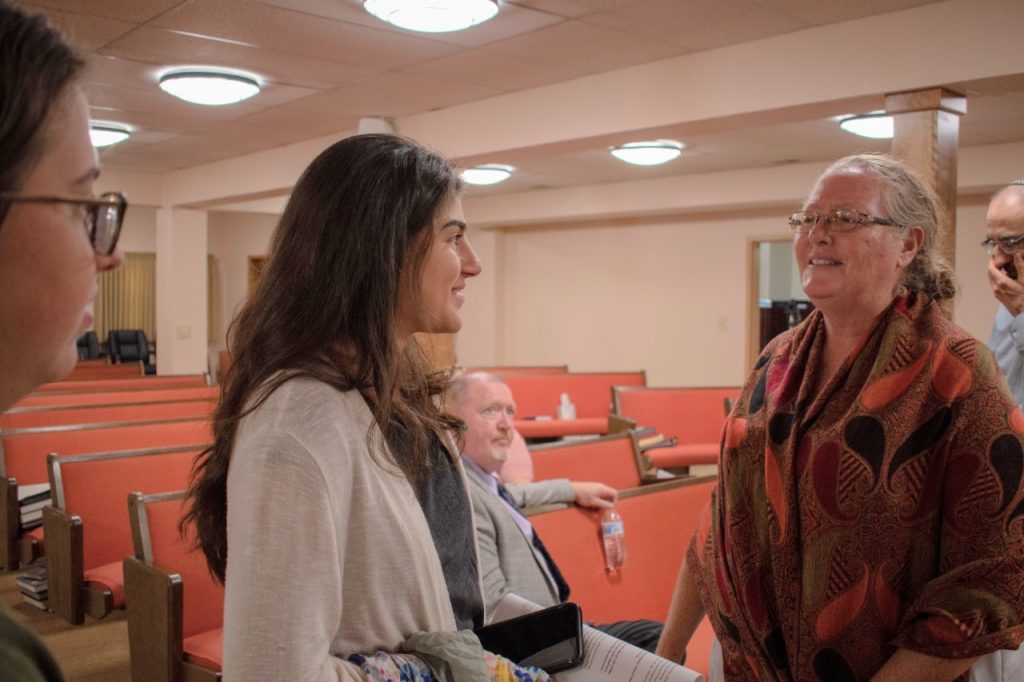Empathy and the Religious “Enemy” is an ongoing project of field work, public scholarship, and student engagement, led by principal investigator Dr. Hillel Gray. The project employs critical-empathic, non-judgmental research methods through direct interaction with members of radically controversial, often hated religious groups, namely the Westboro Baptist Church and the Neturei Karta, an ultra-Orthodox Jewish, anti-Zionist group opposed to the State of Israel and in favor of Palestinian sovereignty.

The Empathy and the Religious “Enemy” project is also under the same leadership as the Preaching Goes Viral project. While these two projects do not overlap completely, they share key themes related to the research and discussion of polarizing social issues in American public life.
With its innovative framework, researchers interview and build relationships with members of groups typically treated as an “oppositional Other” or an “Enemy.” The goal is to better understand the lived experiences of controversial religious radicals, who take and express stances that are seen as deeply offensive and who are themselves often dehumanized, scorned, and ostracized. We aim to change our own empathic understanding and to connect with them and their humanity.
Ultimately, in a divisive religious and political climate, seeking to understand (rather than evaluate) the human experience of others can lead to the mitigation of dehumanization, prejudice and political polarization.
“It’s important for universities to be a forum for engagement on the most difficult and challenging issues of the day – and with people of diverse beliefs and backgrounds, no matter how different they may seem from ourselves. As we teach our students the value of connecting with and truly rehumanizing some of the most hated people in this country, we create opportunities for exploring new lines of inquiry, and ultimately, advancing awareness among students, faculty and the larger public.”
– James Hanges, Chair, Department of Comparative Religion, Miami University
By fostering a critical-empathic lens, investigators not only practice critical distance in their own work, but seek to encourage a more empathic, rehumanizing approach in others as well. With the goal of understanding their subjects’ personal experiences, concerns, and motivations, the project hopes to create a resource base for others interested in radical oppositional groups and their greater social context.
The project may serve in times of conflict to refine the critical-empathetic perception of one’s opponents, religious or political, and to diffuse potential tragedies like those that have too often scarred the history of religion in America.
Learn more about our writings, YouTube videos, and FB discussion group.
